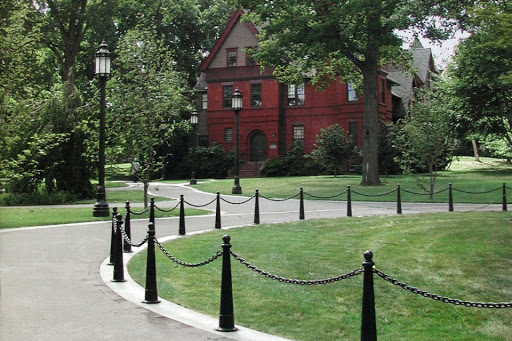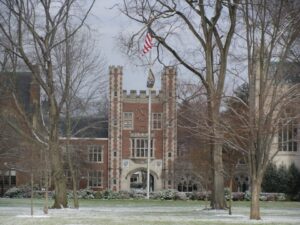Kat Namon ’22
Managing Editor
On Tuesday, Nov. 10, the faculty convened to discuss five motions proposed by the Academic Affairs Committee that would instill permanent changes to the current policies in place. These motions came about out of an increasing need among students to take academic leaves of absence. The AAC first moved that the term “voluntary withdrawal” exclusively be used to describe students who have “declared their intention to permanently step away from the institution” and in all other cases, the term be replaced with “leave of absence.”
The second motion detailed how students would not be “required to be in ‘good academic standing’ in order to take a leave of absence.” This was proposed with the rationale that when students might encounter a mental health and/or medical emergency that would require them to take time off, the school would be doing students a disservice in preventing them from taking the necessary time away from Trinity to cope. The AAC committee posited that a “traumatic life circumstance” could prevent a student from not doing well in upcoming or even previous semesters.
The third motion proposed that students not be automatically placed on academic probation upon taking a leave of absence mid-semester. This motion was rooted in the hopes that removing this title of academic probation would mitigate the burden placed on students when they find themselves in situations that are either out of their control and/or mentally and physically tolling. The AAC disclaimed, however, that students who choose to take a leave of absence “will no longer automatically be placed on academic probation, certain circumstances placing students on probation (academic misconduct, personal misconduct, severe neglect of work, etc.).”
The fourth motion proposed that when a student takes a leave of absence during the semester, “W’s” will not show up on the student’s transcript and instead “there will be a simple message stating the date the student notified us of their leave of absence such as ‘Leave of Absence” along with the date of the leave.
The AAC recognized that the committee had previously granted late withdrawals from courses, and thus no “W’s” would appear on a student’s transcript up until mid-semester. Additionally, students who withdrew during the second half of the semester would have “W’s” on their transcripts, and this was deemed problematic by the AAC for the following reasons. Firstly, if a student has financial aid, “the student must pay back a portion of the tuition if they withdraw, unless they withdraw after they are 60% of the way through the semester.” However, it had been indicated that students not receiving financial aid do not have the same incentive to stay enrolled past the midway point of the semester. Secondly, the AAC stated that if a student has a “traumatic experience, or leaves to attend to an urgent medical or mental health issue” the consequences to the student’s transcript “should be the same whether the trauma or emergency happened in February or April.”
The fifth motion proposed by the AAC sought to “reduce the long-term impact of academic probation for students who incur it” for only the fall 2020 semester. The motion specified that there would be no notation attached to the student’s transcript if they were to incur Academic Probation this fall, but that their advising would still note Academic Probation. This was proposed by the AAC in consideration of the fact that the pandemic “continues to make academic success more difficult for students” and that this increase in difficulty is not “evenly distributed” across the entire student population. The exception of the fall 2020 semester was intended to “ensure that Academic Probation does not harm students who incur it… as a ‘one off’ related to COVID-related circumstances.” The motion also noted that the AAC is cautious of noting Academic Probation on official transcripts because it could potentially harm “future employment prospects.”
Each motion brought up by the AAC passed unanimously without objection. Faculty Secretary and Professor Mark Stater noted how an address by SGA President Giovanni Jones ’21 “led to a good dialogue with the faculty about the SGA’s goals for the year.” The next faculty meeting will take place in December.
The faculty passed previous motions on academic policies for the fall semester in August that were also proposed by the Academic Affairs Committee.







+ There are no comments
Add yours